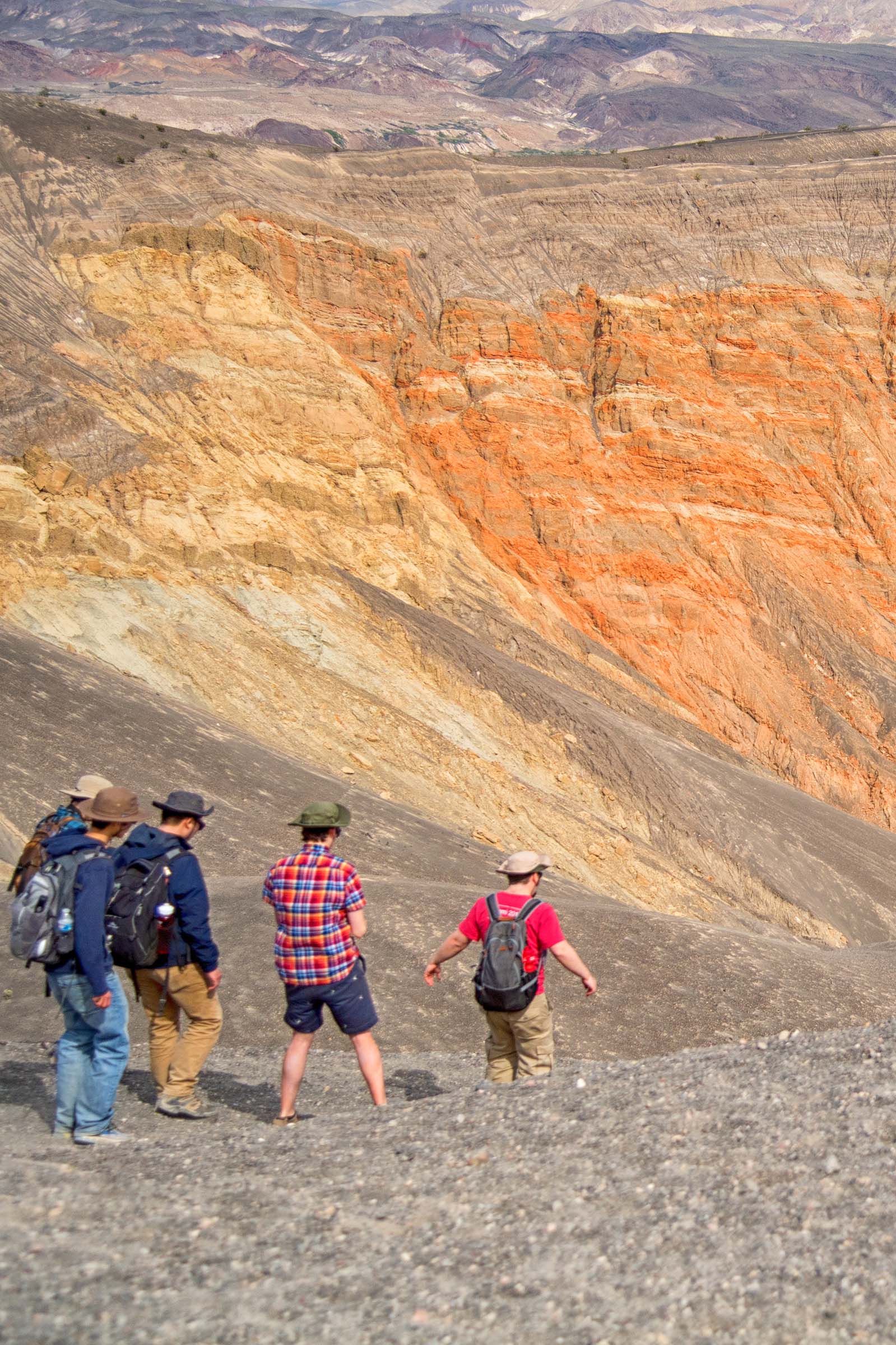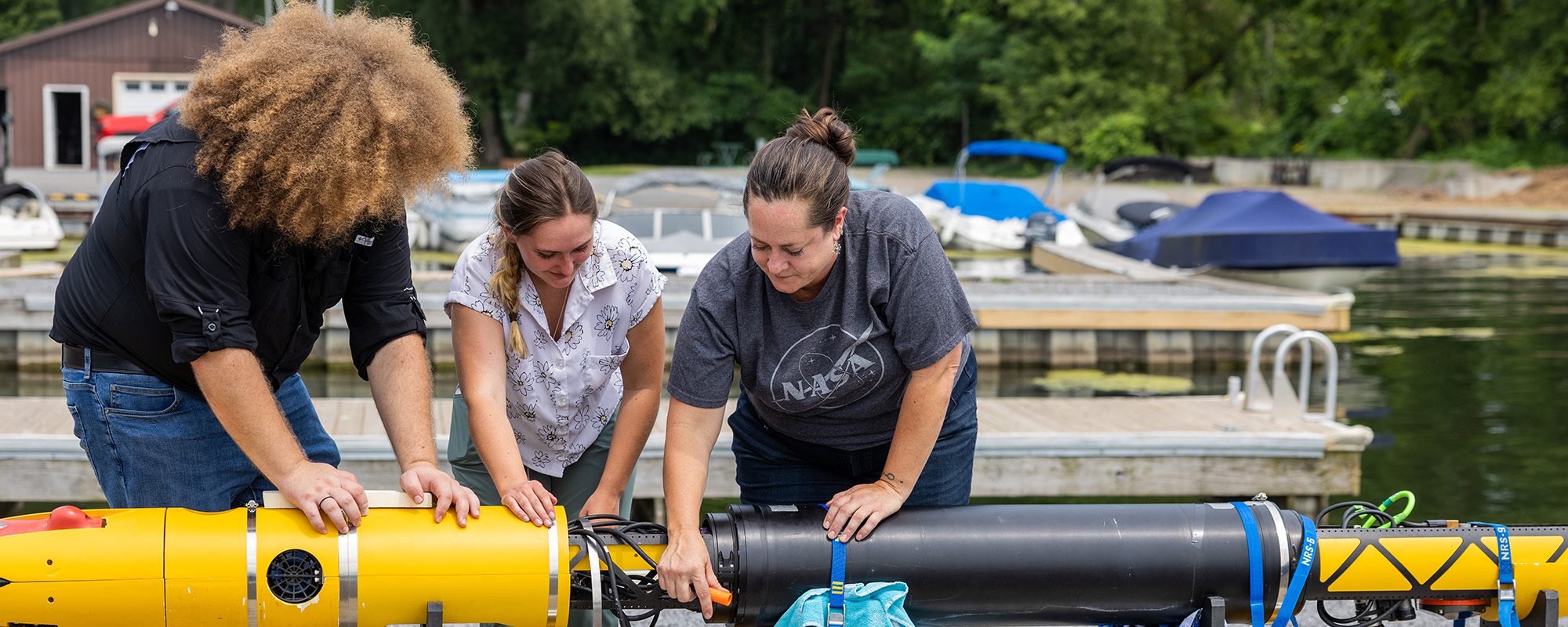The individualized nature of our program means that we can support students with a range of career goals. The program is suitable for students who are interested in furthering their studies in Earth Science and Engineering, sometimes because they became interested in the field late in their undergraduate career and need to develop more depth in the discipline, or to strengthen their computational/analytical skills. It also can allow students with a strong existing background to explore an interdisciplinary project or participate in an immersive research project that goes beyond what is typically possible during the undergraduate experience.

Program Strengths
-
Flexible course options
based on student’s background.
-
Individualized project
with opportunities to present research results within the department and college.
-
Opportunities
to strengthen laboratory, computational, and/or theoretical skills.
-
Access
to career-building and networking programs across the entire college.
-
Connections
to a world-class network of students and alumni from the department, as well as within other departments at Cornell.
Concentration Areas
We offer M.Eng. degrees with a range of concentrations, with the goal of matching research areas that interest prospective students with the core competencies of our faculty. The 30-credit M.Eng. program is intended to extend and broaden this background to develop competence in a defined number of subject categories. Students typically take between 3-4 courses a semester, with the remaining credit hours involving their research project. The following concentration areas cover many of the focus areas explored by our students, but we have the flexibility to accommodate other concentrations within the Earth and Atmospheric Sciences as well.
-
Atmospheric Science
Meteorology, applied climatology, air quality, aerosols, and climate change.
-
Remote Sensing
Remote sensing involves utilization of satellite- and airborne-based remote sensing approaches for time series analysis, land-use change, and understanding of subsurface phenomena.
-
Mineral and Energy Resources
Interdisciplinary approach focused on the geological nature, origin and distribution of resources, mineral deportment, geochemistry, exploration geophysics, waste and tailings, process engineering, economic and climate impacts.
-
Geohydrology
Porous media flow, geology, geochemistry, and numerical modeling.
-
Hazards
Interaction between society and natural and anthropogenic hazards, observations and modeling of the systems that generate these hazards, assessment of risk.
-
Applied and Environmental Geophysics
Geophysics, geology, porous media flow, and computer methods.
The M.Eng. Program Difference
The M.Eng. program differs from a Master of Science (M.S.) in the timeline and potential funding sources. M.S. degrees typically take two years, and students can sometimes also be funded on research grants or teaching assistantships. M.Eng. degrees are for one year and are funded by the student.
Career Placement
-
Job Title Examples
- Business Development
- Engineer
- Geologist
- Staff Geologist
- Visiting Scholar
- Visiting Scientist
-
Featured Employers
- Arcadis
- Consulting Services Incorporated
- FBI Lab/ORISE Fellowship
- Huawei
The Graduate Student Handbook, travel reimbursement forms, scholarship applications, and other student resources are available at Graduate Student Resources and Forms.
Contact
-
Sierra Henry
Assistant Director of Graduate Programs and Course Coordinator
Email (slh297@cornell.edu)
